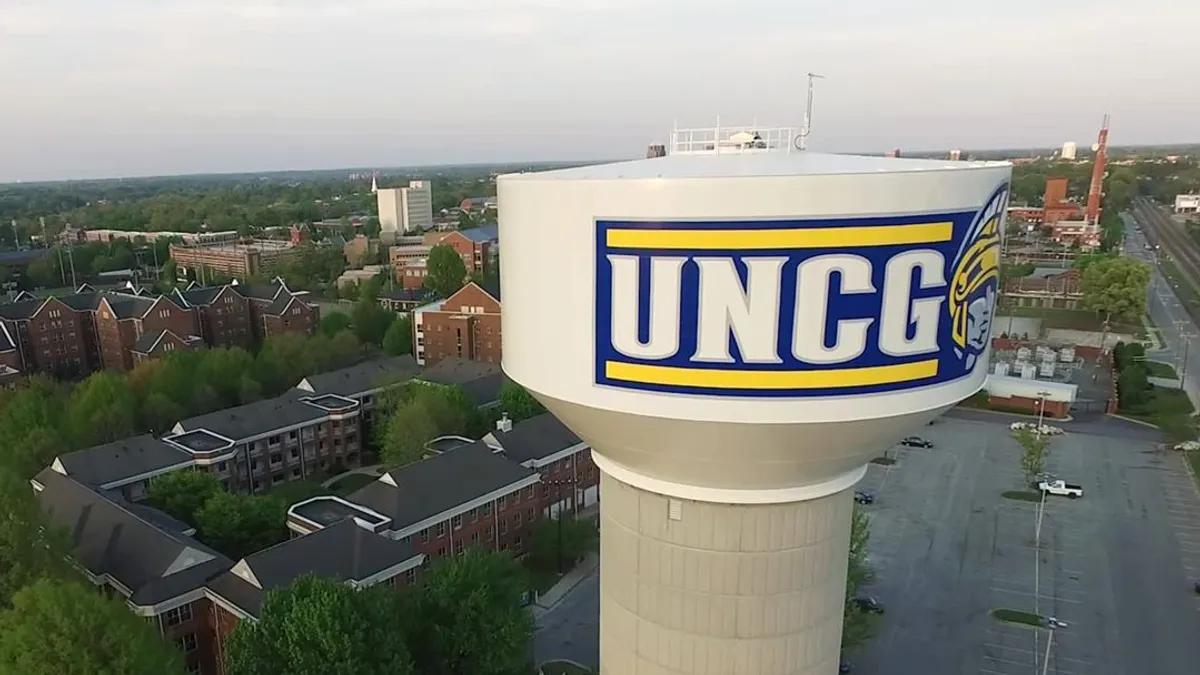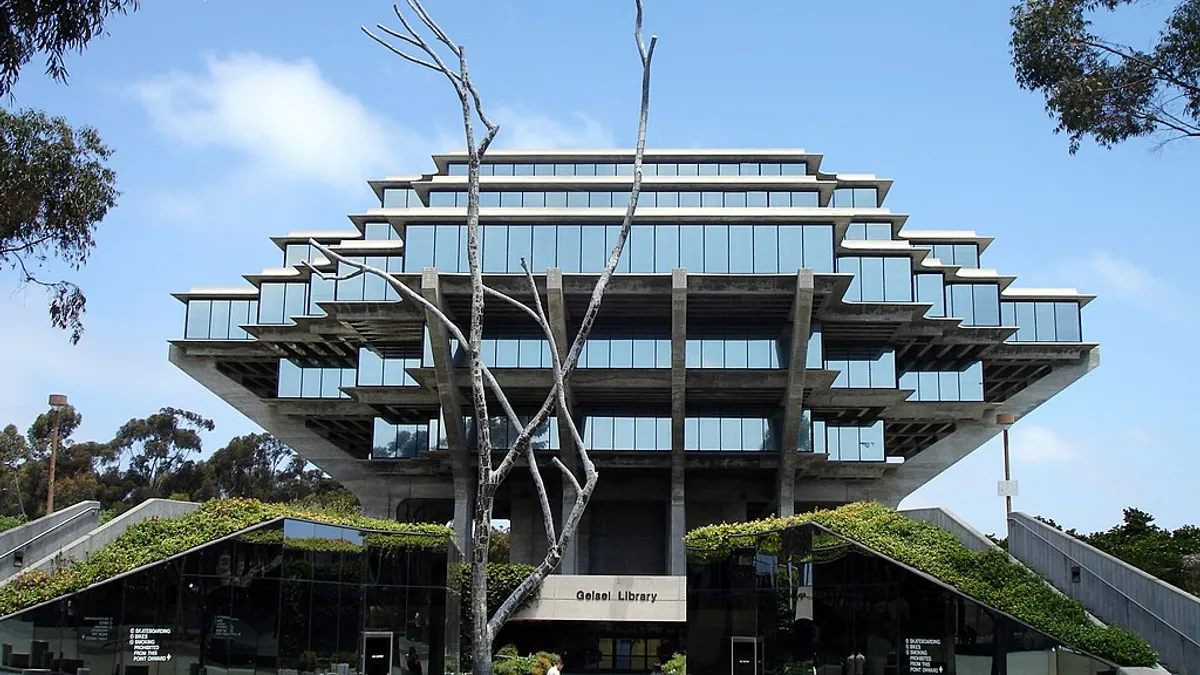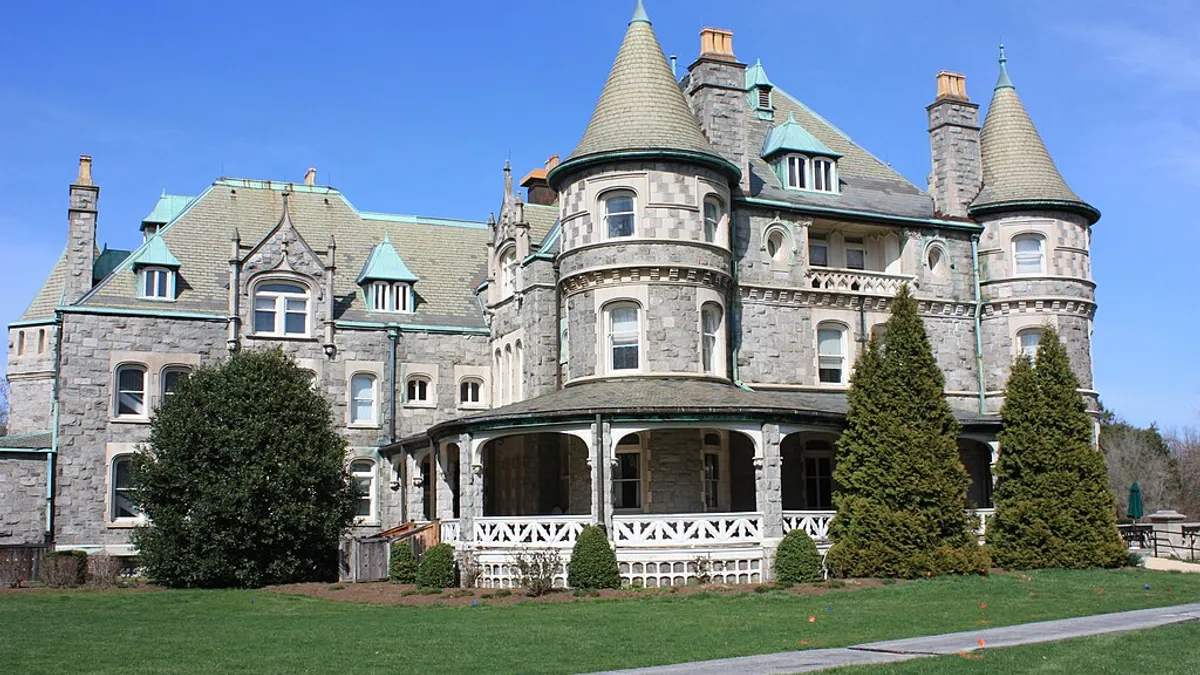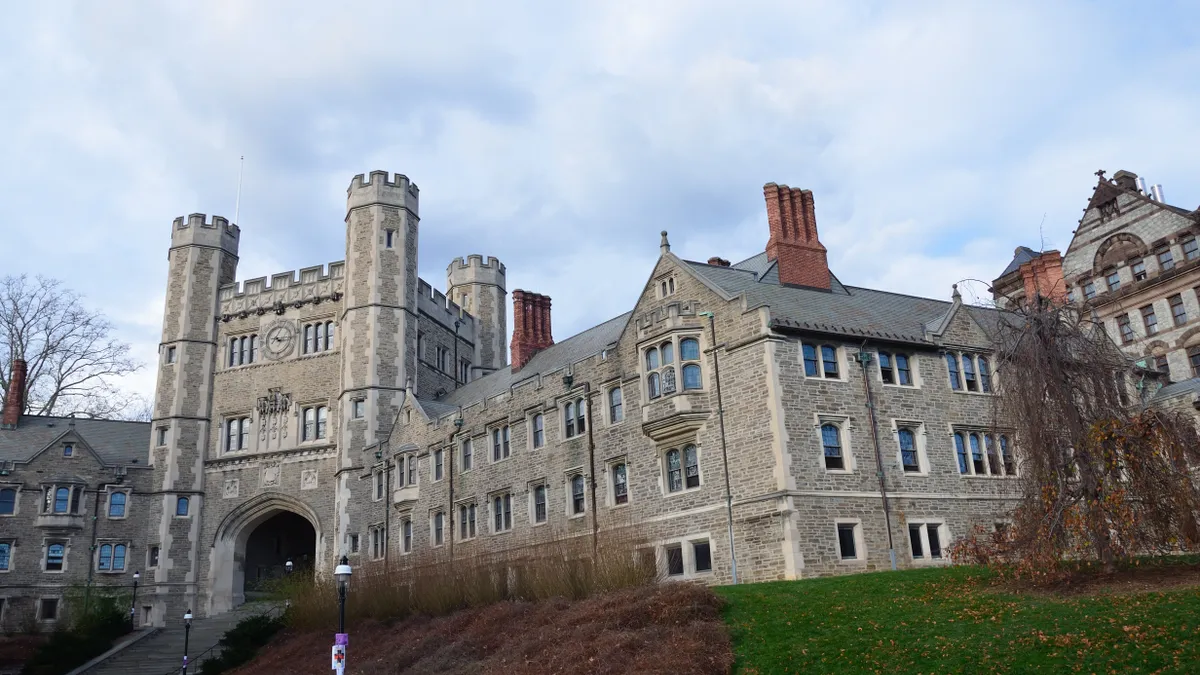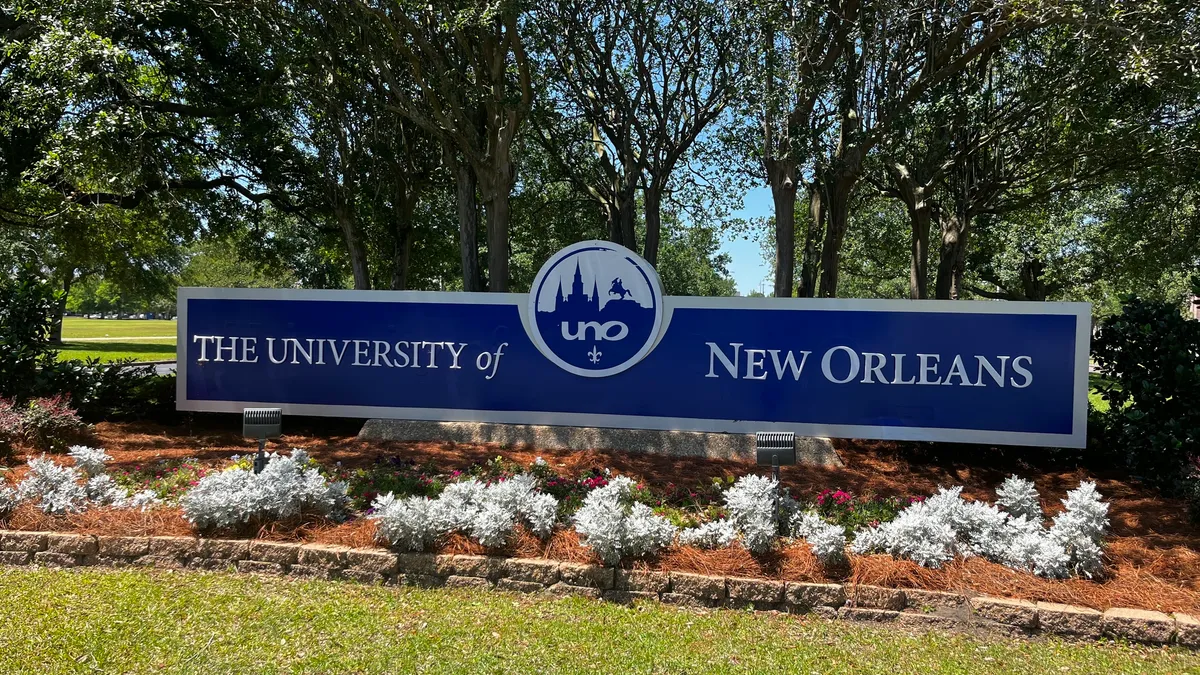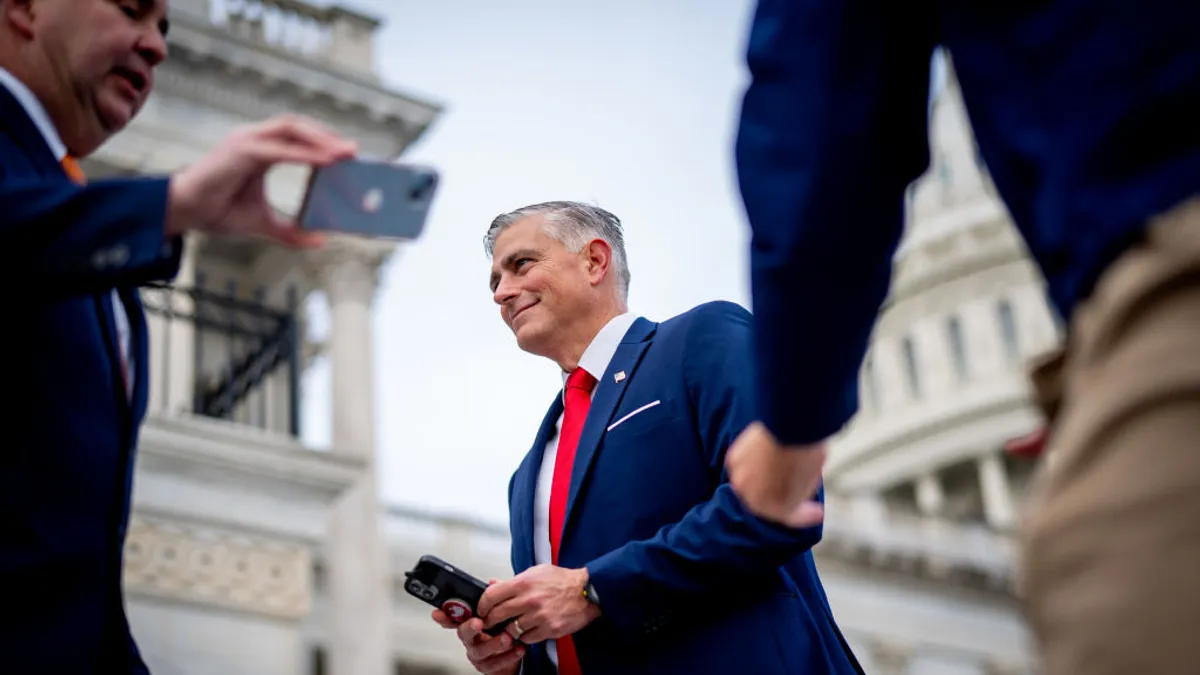For months, administration at the University of North Carolina at Greensboro has intimated the public college will need to scrap academic programs to stave off financial turmoil.
The institution faces stiff competition with some other, and often better known, University of North Carolina System campuses, UNCG Chancellor Franklin Gilliam said during his State of the Campus address in October. The intense market competition and recent enrollment declines at the university means it must reevaluate its academic array, Gilliam said during that speech.
But some faculty members aren’t convinced the university needs to cut back. They’ve spoken out against how UNCG is evaluating which programs it should preserve.
The campus chapter of the American Association of University Professors was so skeptical of the administration’s methods that it commissioned its own program audit by an Eastern Michigan University accounting professor — who in October concluded the university is in sound financial condition.
In fact, Howard Bunsis said he unearthed problems largely related to administrative costs, which he said have swelled far faster than instructional expenses over the past six years.
Gilliam published a public statement refuting Bunsis’ work, saying it was “rife with major and minor inaccuracies and misinformation.”
Regardless, the university in January is to announce program reductions — austerity moves that have become more commonplace among colleges nationwide as headwinds chafe the industry.
But UNCG represents an unusual case of faculty members and their chief executive publicly warring over the financial state of an institution before it even discloses specific cuts. This uncertainty has heightened faculty anxiety, campus AAUP representatives told Higher Ed Dive.
In an interview, Gilliam said the university’s efforts have been overly simplified and misrepresented. In his view, the institution is not pursuing “a budget-shrinking exercise” so much as proactively preparing for onerous market conditions.
“We are preventing the slow weakening of all programs,” said Gilliam, who was named chancellor in 2015. “This will prevent a steady drumbeat of withering cuts.”
A challenging market
UNCG data shows its enrollment spiraled down over the last several years, from 20,106 students in fall 2018 to 17,743 this fall semester, amounting to a nearly 12% decline.
The enrollment contraction bit into the university’s finances, Gilliam said. It went from taking in $115 million in combined tuition and state appropriations revenue in fiscal 2020 to just $92.3 million this fiscal year, he said. Gilliam attributed most of that loss to fewer tuition dollars.
How many students has UNCG lost over the years?
However, unlike other institutions that have pursued cuts recently, UNCG hasn’t publicly proclaimed it has a deficit or shared the size of the budget gap it’s trying to remedy. West Virginia University, for instance, has cited a $45 million budget deficit as a reason for dropping 28 degrees and laying off 140 faculty.
Gilliam said the university has run a deficit, but declined to specify the amount. He said UNCG managed the situation by drawing on reserves and tapping into federal COVID-19 relief funding.
“These are not long-term strategies, by the way,” Gilliam said.
He blamed the enrollment decline on the same factors cited by many other college leaders — the pandemic and its aftermath, as well as growing mistrust of postsecondary education and its value.
The chancellor has also said UNCG vies for students against other North Carolina system institutions.
The University of North Carolina at Chapel Hill and North Carolina State University both have greater name recognition and heftier endowments, Gilliam said in his speech last month. This is a national phenomenon, where flagships like UNC-Chapel Hill and similarly situated publics tend to draw student and family attention away from regional institutions.
However, UNCG competes with other smaller system universities, too, Gilliam has said.
Four system institutions — Elizabeth City State University, Fayetteville State University, the University of North Carolina at Pembroke and Western Carolina University — have signed on to an affordability program, NC Promise, that shrunk their in-state tuition rates to $500 per semester.
But while the program has been a boon to those institutions’ enrollment, it "hurt us, and we have data showing that,” Gilliam said in the interview.
An ‘academic portfolio review’
Amid these realities, UNCG late last year began an “academic portfolio review,” which the administration cast as necessary to “fulfill student needs, remain competitive, and allocate sufficient support for programs.”
As part of that, the university established an internal task force that included faculty to help develop metrics for evaluating its academic operations.
Faculty periodically heard updates on the review throughout this year. But strong backlash emerged in October after the university published rubrics that essentially detailed whether academic programs “fell short of expectations,” said Mark Elliott, a UNCG history professor and president of its AAUP chapter. AAUP is a leading faculty organization with chapters nationwide.
These rubrics evaluated programs on many metrics, Elliott said, like how many grants and students they brought in, and how much they cost to run versus the dollars they generated.
However, faculty found flaws in that analysis, Elliott said.
“The rubric changed six times in the first day it was released. It was too embarrassing when we kept on seeing it change."

Mark Elliott
UNCG history professor and president of its AAUP chapter
Faculty objected to departments being reviewed against one another, when they should instead be compared to similar programs at peer institutions, Elliott said. A physics unit should be looked at against another physics department, and an English department against another English department, they argued.
Greensboro faculty also identified straightforward errors, Elliott said. In one case, the analysis had put a $400,000 expense in an entirely wrong department, he said. Faculty said they continually flagged errors for institution officials, who then adjusted the rubrics.
“The rubric changed six times in the first day it was released,” Elliott said. “It was too embarrassing when we kept on seeing it change.”
Gilliam characterized the rubric fixes as an expected part of the process. The university is working with faculty and relying on their expertise to make improvements, he said.
“We responded to your expert views and we made revisions, as we should,” Gilliam said. “If we had done otherwise people would say it was a top-down process.”
But the miscalculations undermined trust in the overall review, said Jeremy Rinker, vice president of the campus AAUP chapter and a professor in UNCG’s peace and conflict studies department. He said the inaccurate rubrics compounded faculty anxiety over leaders not sharing the extent of the university’s financial troubles.
Rpk Group, the consultancy that UNCG is working with on the review, has also become somewhat notorious in the higher ed world for its role in West Virginia University’s significant program cutbacks.
WVU hired rpk Group as it decided which degrees it should discontinue. But critics accused rpk Group of helping WVU gut degrees while the consultancy profited. The university has said it doesn’t know how much it will pay the company overall, but the contract they struck shows WVU is paying Rick Staisloff, rpk Group’s founder and senior partner, $500 per hour for any work he does.
Rpk Group’s work with UNCG reinforced the fear the university would simply raze key programs, Elliott said.
However, Gilliam said rpk Group’s responsibilities were solely to clean up institutional data — not to suggest which degrees to drop. The consultancy had a similar function at WVU.
Staisloff declined to comment for this article Tuesday.
A public battle
After UNCG issued the October rubrics, the faculty-administrator relationship publicly unraveled.
That month, the campus AAUP chapter posted a list of programs on its website and social media that members thought could be on the chopping block. The chapter used rubric data to determine those predictions, Elliott said.
The AAUP took down the list from its website, but it’s visible on the AAUP chapter’s Instagram. Elliott acknowledged the list was unreliable given the continually changing rubrics.
Gilliam that month issued a public statement deriding “misinformation” about degree cuts, appealing to students specifically. He said he regretted students were exposed to misleading information when they had enough on their “plates with academics, campus involvement, and work.”
“You don’t need to worry about whether you will be able to complete your education in your chosen major with everything else you are managing,” Gilliam said.
In response, Elliott accused university leaders of demonizing the AAUP.
In a separate missive to colleagues on Oct. 24, Gilliam took aim at the AAUP-commissioned report from Bunsis, the accounting professor.
Gilliam pointed out that Bunsis conducted a similar study on the University of Buffalo in 2020, which officials there decried as inaccurate and inconsistent. The New York public college said Bunsis was a “paid consultant with a pre-conceived agenda.”
At the time, University of Buffalo officials also said they had parsed through 13 other analyses Bunsis prepared on other institutions, and each time he concluded that administrators were bloating costs.
“The similarity of the financial analyses calls into question the objectivity of the analysis,” the University of Buffalo said.
In his message, Gilliam said Bunsis had ignored the enrollment-dependent nature of UNCG’s operating model.
“No responsible analysis of our finances would conclude that we can lose 2,500 students — a number equivalent to an entire first-year cohort — over four years and not have to consider substantial changes,” Gilliam said.
Still, Gilliam’s statement did not address certain elements of Bunsis’ audit.
The professor found that last year, UNCG spent $8.6 million on salaries and benefits in “instructional support,” the primary category of administrative expenses. That represents a nearly 52% increase since 2017, Bunsis found. Meanwhile, the university dedicated about $7.8 million to instructor pay and benefits — which was only about 6% more since 2017.
Also according to his report, UNCG’s athletics department has run a $10 million-plus deficit every year since at least 2012, with last year’s budget gap reaching more than $13.7 million, despite UNCG not being a major player in college sports.
In his interview, Gilliam refused to discuss Bunsis’ report.
“It’s just no,” he said.
Asked about the university’s criticisms, Bunsis in an email Tuesday reiterated his findings.
“There are too many administrators making too much money at UNCG,” he added.
What’s going to happen now?
Faculty now await a gloomy announcement of which programs the university will relinquish, which it’s supposed to share publicly in January. Some programs could be scaled back, others will disappear altogether.
Gilliam plans to make a final call in February on which programs it will nix. UNCG will also need system approval for the cuts.
The university will begin early next year winding down the affected programs, including by identifying teach-out options for students. Those already enrolled in the programs will be able to finish their degrees, Gilliam said.
Lisa Levenstein, a UNCG history professor, said the campus mood is low. Faculty feel afraid and think administrators are trying to “divide and conquer” them by comparing their departments, she said.
Arts and humanities faculty perhaps are most alarmed, Levenstein said. The university’s analysis seems stacked against those types of programs, she said.
Faculty worry the North Carolina system has started taking less stock in the liberal arts. For one, state lawmakers this year blocked funding for distinguished professorships at public institutions unless recipients teach in science, technology, engineering or math programs.
Gilliam made clear he supports humanities programs. He said the university might opt to maintain some programs that may not have the best financial returns but still have value.
“There could be some surprises,” he said.
UNCG students have noticed the campus turmoil. Some of them have protested program cuts in person. And on the digital front, an AAUP-run petition against consolidation racked up nearly 4,000 signatures of students, staff, alumni and others as of Friday afternoon.
“People are afraid, confused,” Levenstein said. “We don’t know how decisions on people’s livelihoods will be made, and that’s a pretty scary place to be.”



